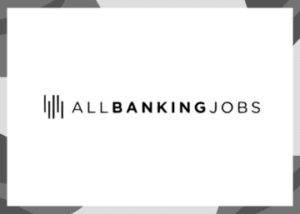With the re-election of Donald Trump and his continued focus on “America First” policies, global finance professionals, especially those involved in cross-border banking, are navigating uncertain times. Trump’s stance on trade, foreign investments, and regulatory reforms has brought both challenges and opportunities to the world of international banking. In this blog, we’ll explore how these policies could impact cross-border banking jobs and what professionals should anticipate in the coming years.
1. Trade Tensions and Their Influence on Cross-Border Banking
Trump’s administration is known for imposing tariffs and renegotiating trade deals in an effort to protect American industries and reduce dependency on foreign manufacturing. This approach has implications for cross-border financial transactions, trade finance, and foreign investments.
Impact on Cross-Border Banking Jobs: With increased tariffs and trade restrictions, cross-border banking professionals may find themselves managing more complex regulatory requirements, tariffs, and compliance measures. Professionals involved in trade finance, foreign exchange (Forex) trading, and global risk management will need to be well-versed in adapting to these regulations, as businesses may seek guidance on how to navigate new trade rules.
Job Opportunities: Although trade tensions can be challenging, they also create demand for experts in compliance and regulatory advising. Those specializing in trade finance or Forex may find an increase in advisory roles as companies attempt to mitigate the effects of tariffs and shifting trade policies.
2. Foreign Investment Regulations and International Banking Careers
Trump’s “America First” strategy has also focused on limiting foreign investments in U.S. industries that could impact national security, such as technology and infrastructure. Increased scrutiny on foreign investment flows into the U.S. impacts the structure and volume of cross-border transactions, mergers, and acquisitions.
Impact on Cross-Border Banking Jobs: Banking professionals involved in mergers and acquisitions (M&A) and cross-border investment banking may experience shifts in deal flow, particularly in sectors impacted by tightened foreign investment regulations. International banking teams may have to conduct more in-depth due diligence and ensure compliance with stricter government oversight.
Job Opportunities: For professionals working in M&A, compliance, and legal advisory roles within banks, there will likely be more demand for expertise in regulatory compliance for foreign investments. Specialists who understand global markets, U.S. investment laws, and how these interact will be vital in navigating these complexities.
3. Rising Demand for Risk Management Professionals
With the “America First” policy approach introducing volatility in trade and international relations, financial institutions need to assess the risks associated with their cross-border operations more closely. Political and economic uncertainties are reshaping risk management roles, especially for those tasked with assessing the impact of regulatory changes and trade restrictions.
Impact on Cross-Border Banking Jobs: Risk management professionals will play a key role in helping banks assess exposure to political and regulatory changes under Trump’s policies. Whether it’s managing the financial impact of potential tariffs, navigating economic shifts due to renegotiated trade agreements, or identifying emerging market risks, risk managers will be at the forefront of cross-border banking.
Job Opportunities: Risk management positions could become more critical as banks prioritize protecting their international operations and assets. This demand extends to areas like country risk analysis, credit risk management, and regulatory risk, as banks continue to operate in an increasingly volatile and protectionist environment.
4. Changes in Global Regulatory Compliance
As Trump’s policies emphasize reducing international dependency and reshaping trade agreements, regulatory landscapes worldwide may see significant changes. Financial institutions operating across borders must stay informed about updates to these agreements and adjust their practices accordingly to stay compliant.
Impact on Cross-Border Banking Jobs: Compliance officers specializing in international regulations may see an increased workload, as financial institutions adjust their practices to meet both U.S. and international regulatory standards. For cross-border banking professionals, understanding multiple regulatory frameworks becomes essential.
Job Opportunities: Compliance roles within banking, especially those with a focus on cross-border transactions, will likely see growth as institutions seek professionals who can help manage adherence to complex, evolving regulations across various countries. Compliance analysts and managers who can navigate the intricacies of U.S. and foreign regulatory landscapes will be in demand.
5. Opportunities in Advisory Services and Market Strategy
Trump’s economic policies have also reshaped global market dynamics, which opens doors for advisory roles in banks that provide consulting on market strategy, risk, and regulatory adherence. Banks must support clients in adjusting their market strategies and investment portfolios in response to Trump’s evolving economic agenda.
Impact on Cross-Border Banking Jobs: Investment bankers, financial analysts, and advisors with expertise in global markets may see an increased demand for their services as clients seek strategic advice on how to navigate the new market landscape. Advisory roles that focus on market entry, diversification strategies, and economic impact assessments will be especially relevant.
Job Opportunities: Roles in client advisory, particularly for clients with international investments, will likely grow as companies look to mitigate risks associated with cross-border transactions. International market strategists, economic analysts, and client relations specialists may see increased demand as banks provide in-depth guidance to global clients adjusting to Trump’s policies.
6. Technology and Data Analytics in Cross-Border Banking
Finally, with the rise of regulatory requirements and the complex nature of Trump’s policies, cross-border banking has seen increased reliance on technology and data analytics to monitor compliance, manage risks, and streamline operations.
Impact on Cross-Border Banking Jobs: As cross-border banking becomes more complex, technology and data analysis play a crucial role in ensuring compliance and managing risks. This trend is particularly valuable in real-time monitoring of transactions, market trends, and regulatory changes.
Job Opportunities: Banking professionals with expertise in financial technology (fintech) and data analytics may find a growing demand for their skills in the cross-border banking space. Roles in financial data analysis, regtech (regulatory technology), and fintech integration will likely become more prevalent, as banks seek innovative ways to adapt to regulatory and economic changes.
Conclusion
Trump’s “America First” policies have introduced both opportunities and challenges for cross-border banking professionals. As trade policies evolve, foreign investment faces more scrutiny, and regulatory landscapes grow more complex, banking professionals with expertise in compliance, risk management, and advisory roles will be in high demand. The shifting dynamics also emphasize the need for professionals skilled in financial technology and data analytics to manage cross-border operations effectively.
For those in the banking sector, staying informed and adaptable to these changes will be essential. If you’re exploring a career in cross-border banking, consider focusing on roles that emphasize regulatory compliance, risk management, and global market strategy—areas that are likely to grow in importance under Trump’s policies. At “All Banking Jobs,” you can find a variety of cross-border banking positions that align with this dynamic economic landscape, positioning you for a successful career in international finance.






